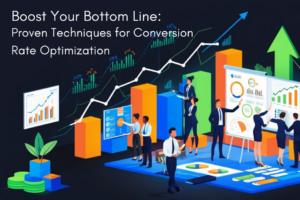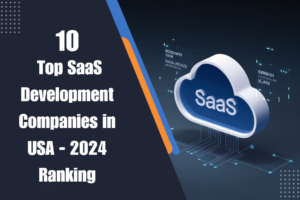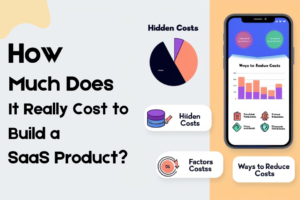Website and Web Portal: Understanding the Key Differences

Table of ContentsToggle Table of ContentToggle
The Internet is one of the most significant technologies used to connect in today’s world. All it takes to access a variety of online assets is to launch a web browser, type in a web address, and navigate to a website or portal. These phrases can be substitutes while having different functional and technical meanings.
A website and web portal Development are primarily different in that the former is made for informational purposes, at the same time. The latter enables users to communicate with other users and interactive services. Furthermore, webpages are smaller and less feature-rich than online portals. It lacks a great level of technological ability to design and maintain. In essence, every website can be referred to as a portal, although websites are portals.
Understanding of the Website
Making a website is super important for people, businesses, and groups who want to be seen online. It’s like building a home on the internet where you can share stuff with others. Making a website means creating web pages, writing stuff to go on those pages, and adding pictures or videos to make it all look nice. There are different parts to making a website, like designing how it looks, writing the code to make it work, creating all the words and pictures, and making sure it shows up well on search engines like Google. It’s kind of like putting together puzzle pieces to make a cool online place where people can find it.
Key Features of the Website
Its main features are the key parts that support a website. It determine its performance, user experience, and success. The following are some of the most crucial elements that each website need to have.
1. Security: Put strong security measures in place. It will safeguard user information and uphold audience confidence. This entails making sure the website is safe from any attacks and utilizing SSL certificates.
2. Quick Loading Speed: Make sure the website loads fast, since slower load times can have a detrimental effect on both search engine rankings and user experience.
3. Designing with responsiveness: Website development provide adjusts to various screen sizes and devices, such as desktops, laptops, and mobile devices. Better search engine rankings and a smooth user experience depend on this.
4. Simple Navigation: Make sure your navigation system is user-friendly so people can quickly locate what they’re searching for. This entails a visible navigation bar. It has an easy structure to navigate and internal links to help users.
5. Content Caliber: Make sure the information on the website is of the highest calibre, pertinent to your target audience, clear, and entertaining. To keep consumers interested, this involves using many kinds of material. These include pictures, videos, and infographics.
The Future Scope of Website
Websites have an exciting and limitless future ahead of them. Owners of websites may keep improving user experiences. It can also increase engagement and drive corporate success. It can do this by adopting new trends and technology.
1. Customization: Websites development will get better at recognizing the unique interests and actions of each person. This means each user’s interests will inform the material, suggestions, and ads that it sees. This will improve their surfing.
2. Optimizing for Mobile: Websites development will keep refining their mobile versions as smartphones become more and more common. This includes designs that are simple to use on tiny displays, quicker download speeds, and intuitive navigation.
3. Voice Recognition and Conversation: Websites development will add voice search. This is because voice assistants like Siri, Alexa, and Google Assistant are gaining popularity. Instead of typing, users may now discover information by speaking.
4. Enhanced Protection: Website security will becoming more robust as worries about data protection and online privacy grow. These include better encryption and safe authentication procedures. It also include following international data protection rules.
5. Augmented reality (AR) and virtual reality (VR): Website experiences will become more engaging and immersive via the usage of VR and AR technology. This is very helpful for gaming, schooling, real estate tours, and internet shopping.
6. Evolution of E-Commerce: The world of online buying will continue to progress. The shopping experience will improve. It will have features like virtual try-ons, AI-driven product suggestions, and easier payment. These will make it more engaging and tailored.
7. Increased Availability: All users, including those with impairments, will be able to visit websites thanks to their accessible design. This means adding functions. These include keyboard navigation, screen reader compatibility, and alt text for photos.
8. Engagement and Interactivity: It will add more interactive features to websites. These include infographics, animations, and places for people to submit material. This increases the site’s interest level and keeps users interested.
Why we Choose the Website
What is Web Portal ?
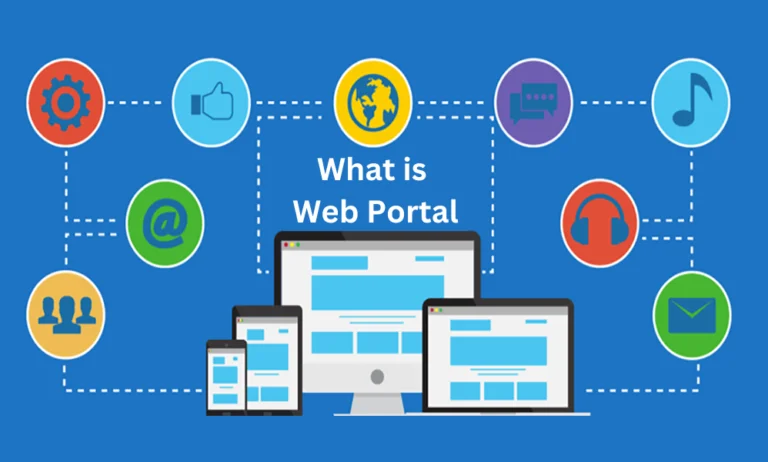
Types of Web Portal
The way we engage with information and services on the internet has been completely transformed by web portals. These dynamic platforms make it easier for consumers to find what they need. It also keeps consumers connected by giving them one point of entry to many tools, apps, and content. The many kinds of online portals that are changing the digital environment are as follows:
1. Corporate Portals: Companies use them to give staff access to corporate information, tools, and resources. It helps with processes, internal communication, and cooperation. Employee self-service portals and intranet portals are two examples.
2. Customer Portals: Companies use them to offer information, help, and custom services to their clients. Customer portals can include comprehensive product information, support ticketing, and account management. Telecom customer service portals and banking portals are two examples.
3. Government Portals: These portals provide citizens with access to various government services and information. It aims to improve the efficiency of public service delivery. Examples include portals for tax filing, social services, and public records.
4. Educational Portals: Educational institutions use these portals. It provides students, teachers, and parents with access to academic resources, administrative info, and communication tools. Examples include learning management systems (LMS) and university portals.
5. Healthcare Portals: Healthcare providers use these portals. It uses them to give patients access to their medical records, appointments, and other health services. Examples include patient portals and health information exchange portals.
Key Features of the Web Portal
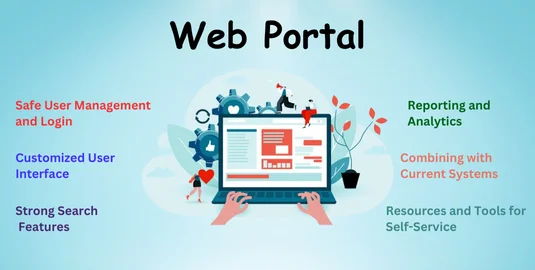
Web portals have these key traits and abilities. It may become effective tools for improving user experience, optimizing processes, and meeting company goals. Remember, building a user-centric platform is key. It should empower users and promote meaningful interactions. This is more important for a successful web portal than just focusing on technology.
1. Safe User Management and Login: Security is crucial, particularly when handling private data. Web portal development should have secure login procedures. It should include features like user activity logs and two-factor authentication. Limiting user access to the data and features they need for their roles can improve security.
2. Customized User Interface: User Engagement is mostly dependent on personalization. Through web portal development , users can make profiles. It can specify preferences and get material tailored to meet their needs. Features like tailored notifications, content suggestions, and configurable dashboards can help achieve this.
3. Strong Search Features: Any online portal has to have a strong search engine. With the use of complex search tools, filters, and keywords, users need to be able to get the information they require quickly. For a smooth search experience. This can contain functions like faceted search and auto-complete recommendations.
4. Resources and Tools for Self-Service: Enabling users to solve problems and finish assignments on their own is essential. Web portals development can provide self-service features. These include online tutorials, downloads, knowledge bases, and FAQs. This expedites user processes and lessens need on customer service.
5. Combining with Current Systems: Business solutions, like CRM, ERP, and marketing automation platforms. It should easily integrate with modern online portals. By doing this, data silos are removed and a consistent user experience is maintained across many apps.
6. Reporting and Analytics: Information is king. Data from web portal development gives key info. It’s about user behaviour, engagement with content and portal operation. Administrators may find areas for development. It can improve the portal to better serve users by monitoring key indicators.
The Future Scope of Web Portal: Unlocking New Possibilities
Web portals have revolutionized the way we interact with information and services online. These dynamic platforms provide a single point of access to a wide range of content, applications, and tools, making it easier for users to find what they need and stay connected. As technology continues to evolve, the future scope of web portal development is expected to be shaped by emerging trends and innovations. Here are some key aspects that will define the future of web portal development.
1. Progressive Web Apps (PWAs): PWAs are revolutionizing how we interact with online apps. PWAs give users an offline working experience, responsive action, and lightning-fast page loading by simulating a native app experience in the browser. This technology will keep influencing how online portals are made. It will raise user engagement and conversion rates.
2. Artificial Intelligence (AI) Integration: AI is becoming more and more essential to the creation of online portals. AI can support customized interactions on online portals. It can also provide insightful data and forecast consumer behaviour. Web portals with AI capabilities will keep increasing user engagement and conversion rates.
3. Internet of Things (IoT) Integration: The way we engage with devices and data is changing as a result of the IoT. IoT devices will be more and more smoothly integrated with web portals. This will make it easier to exchange data and communicate. The entire user experience will be improved by this connection. This will also open up new possibilities for data-driven insights.
4. Data Security and Compliance: When web portal development provide data security has emerged as a key concern. Web portals need to make sure It have strong security procedures in place to safeguard user data as cyber threats keep changing. Web portals development will continue to need to comply with laws like the GDPR and HIPAA.
5. Cloud Computing and Serverless Technologies: The development and use of online portals are changing. This is due to serverless tech and cloud computing. These technologies are crucial for the construction of web portals in the future. Because It provides increased scalability, flexibility, and cost savings.
Why we Choose the Web Portal Development
The Major Difference Between Website and Web Portal
| Criteria | Website | Web Portal |
| User Communication | Usually, interactions on websites are one-way. | With its users, a web portal makes two-way communication easier. |
| Management | Website information sources don’t need to be updated frequently unless absolutely required. | On a web portal, information sources must be updated on a regular basis. |
| Features | A website serves as an informational resource that everyone may access, regardless of login status. | A web portal acts as a point of entry for consumers to obtain certain data from a specified domain. |
| Fundamentals | A website is an online destination made up of several web pages that may be accessed by using a URL. | A web portal is a particular point of entry where material is restricted to authorized users only. |
Examples of Web Portals and Websites for better understanding
Examples of Web Portals
LinkedIn:
A social networking site where users can interact, exchange material, and create profiles. It also has chat and news feed functions.
Coursera:
It is a website for learning. It offers individualized experiences by providing courses from prestigious colleges and institutes.
Zendesk:
An online customer care portal that combines a number of services, including knowledge bases, ticketing, and teamwork tools
Examples of Website
EDX:
MIT and Harvard University established this educational platform. which provides renowned colleges and institutions with excellent courses.
The New Yorker:
It is a news and information website. It has search, subscriptions, and classification. It covers a range of subjects.
CNN:
It is a news website. It offers information on many subjects. These include news, videos, and articles.
Conclusion:-
Despite their frequent confusion. A website and web portal have different functions and offer different uses for the internet. Knowing the main distinctions between the two is essential to choose the one that will work best for a given set of circumstances. A website is a group of connected web pages. It is made for a specific purpose. This could be sharing information, selling products, or providing services. Websites development can be straightforward, with only a few pages, or intricate, with several parts and subpages. It can be dynamic or static. It includes easily updated info and is designed to be easy to use with simple navigation. Aiming to target a wide audience, websites are open to all users and do not require user identification for basic access.
On the other hand, a web portal development combines data from several sources into a single interface, serving as a gateway to a range of resources and services. Businesses often use portals. It gives staff, clients, or members a single place to access tailored software, services, and information. With features like user authentication, customized dashboards, teamwork tools, and real-time data updates, they are quite engaging.
It combines different tools and resources in one place. It customize them to each user’s requirements based on their login credentials. This improves the user experience. A web portal development , on the other hand, acts as a personalized gateway to a carefully selected collection of resources and services, frequently requiring user participation and authentication. A website development is an online destination for distributing broad information and corporate presence.
The decision between a website and web portal is mostly based on the organization’s goals and the unique needs of its user base. A web portal development is the best option for companies and organizations.
It wants to provide a thorough, custom user experience. It has integrated tools and resources. A website is better ideal for individuals who want to engage a large audience and give easily available information.
About Author

Written By Aadil Hussain
Aadil Hussain, a senior web developer and technical content writer, has been developing custom projects for TechnoProfiles for 4+ years. His expertise lies in WordPress, Laravel, MERN, MEAN and custom web/app development.

